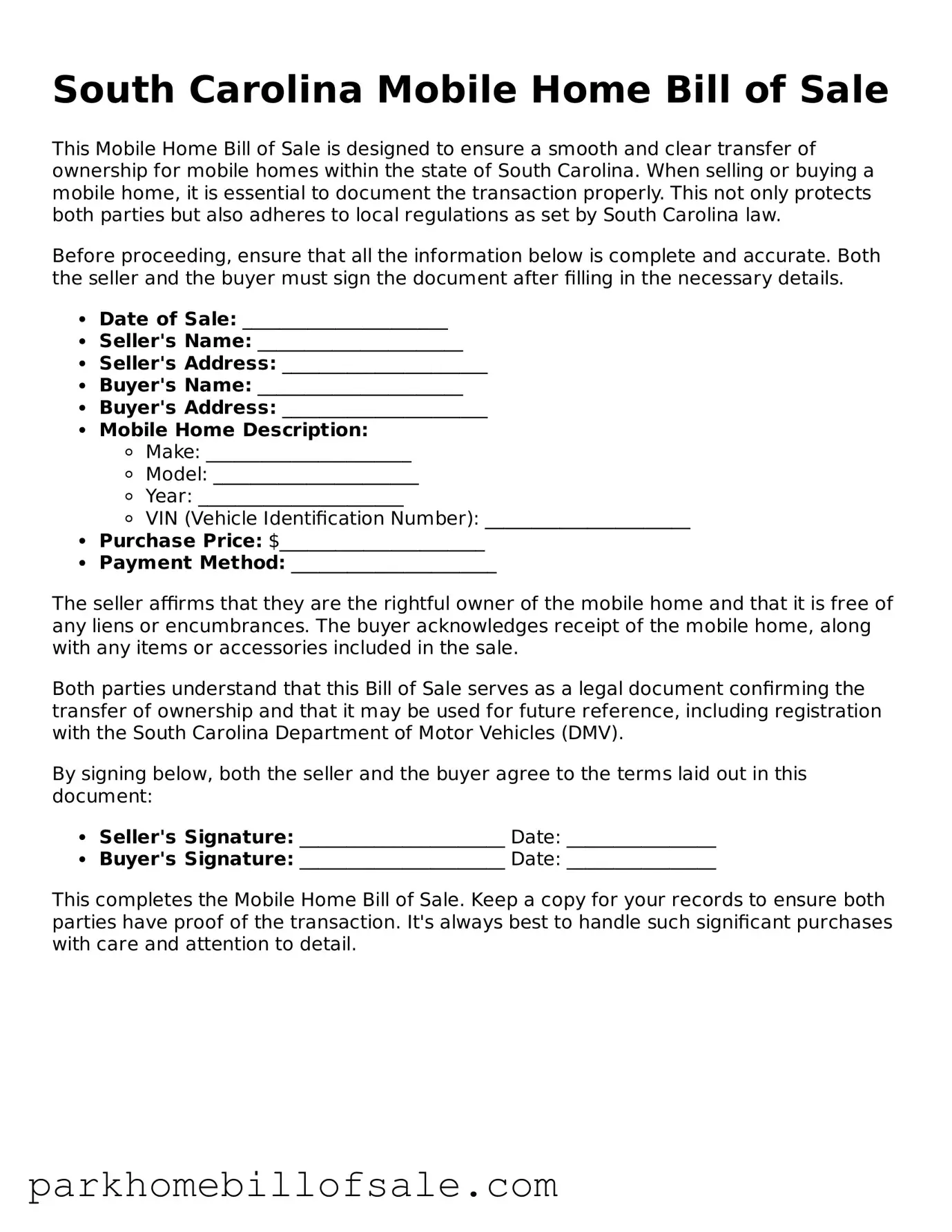Documents used along the form
When transferring ownership of a mobile home in South Carolina, several forms and documents may be required in addition to the Mobile Home Bill of Sale. These documents help ensure that the transaction is complete and legally binding. Below is a list of commonly used forms that may accompany the bill of sale.
- Title Certificate: This document proves ownership of the mobile home. It must be signed over to the new owner during the sale.
- Affidavit of Title: This form is used to confirm that the seller has the right to sell the mobile home and that there are no liens or claims against it.
- Sales Tax Form: This document is often required to report the sale and calculate any applicable sales tax that must be paid to the state.
- Transfer of Ownership Form: This form officially records the change in ownership with the South Carolina Department of Motor Vehicles (DMV).
- Bill of Sale for Personal Property: In some cases, a separate bill of sale may be needed for personal property included in the sale, such as appliances or furniture.
- Inspection Certificate: This document may be necessary to show that the mobile home meets safety and health standards before the sale can be finalized.
- Warranty Deed (if applicable): If the mobile home is part of real estate, a warranty deed may be needed to transfer ownership of the land as well.
- Lease Agreement (if applicable): If the mobile home is located in a mobile home park, a lease agreement may be required to transfer the rental rights for the lot.
These documents work together to facilitate a smooth transfer of ownership and protect the interests of both the buyer and seller. It is important to ensure that all necessary paperwork is completed accurately to avoid any potential issues in the future.
